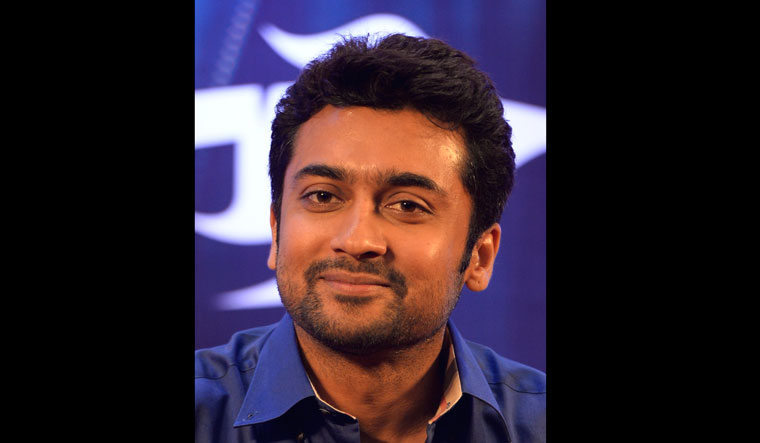Actor Suriya on Friday expressed his objection to the draft Cinematograph (Amendment) Bill, 2021. In a tweet, he urged his followers to record their objections to the proposed changes to the Act.
“Law is meant to protect the freedom of expression. It is not supposed to strangle its voice,” he tweeted. The actor also shared a Google document link where people can register their comments against the draft Cinematograph bill.
Suriya is the latest celebrity to come out against the proposed amendments. Earlier this week, actor-politician Kamal Haasan also tweeted against it, and urged people to raise their voices. “Cinema, media and the literati cannot afford to be the three iconic monkeys of India. Seeing, hearing and speaking of impending evil is the only medication against attempts to injure and debilitate democracy,” he wrote on his Twitter account.
Recently, a group of actors and filmmakers, including Anurag Kashyap, Hansal Mehta, Vetri Maaran, Nandita Das, Shabana Azmi, Farhan Akhtar, Zoya Akhtar and Dibakar Banerjee, wrote an open letter to the Information & Broadcasting Ministry, against the proposed amendments to the 1952 Cinematograph Act. The letter, with over 1,400 signatories, stated that the amendment is another blow to the film fraternity. The letter further stated that the act will render filmmakers ‘powerless at the hands of the state’. “As another blow to the film fraternity, the Ministry of Information and Broadcasting has proposed new amendments to the Cinematograph Act under which the Central Government would have the power to revoke or recall certification of films which have already been cleared by the Censor Board. Undermining the sovereignty of the Censor Board and the Supreme Court, this provision will effectively give the Central Government supreme power over cinema exhibition in the country potentially endangering freedom of expression and democratic dissent,” the letter said, the Indian Express reported.
The draft Cinematograph (Amendment) Bill, 2021 gives the Union government power to re-examine the films that are already cleared for public screening by the Central Board of Film Certification (CBFC).


